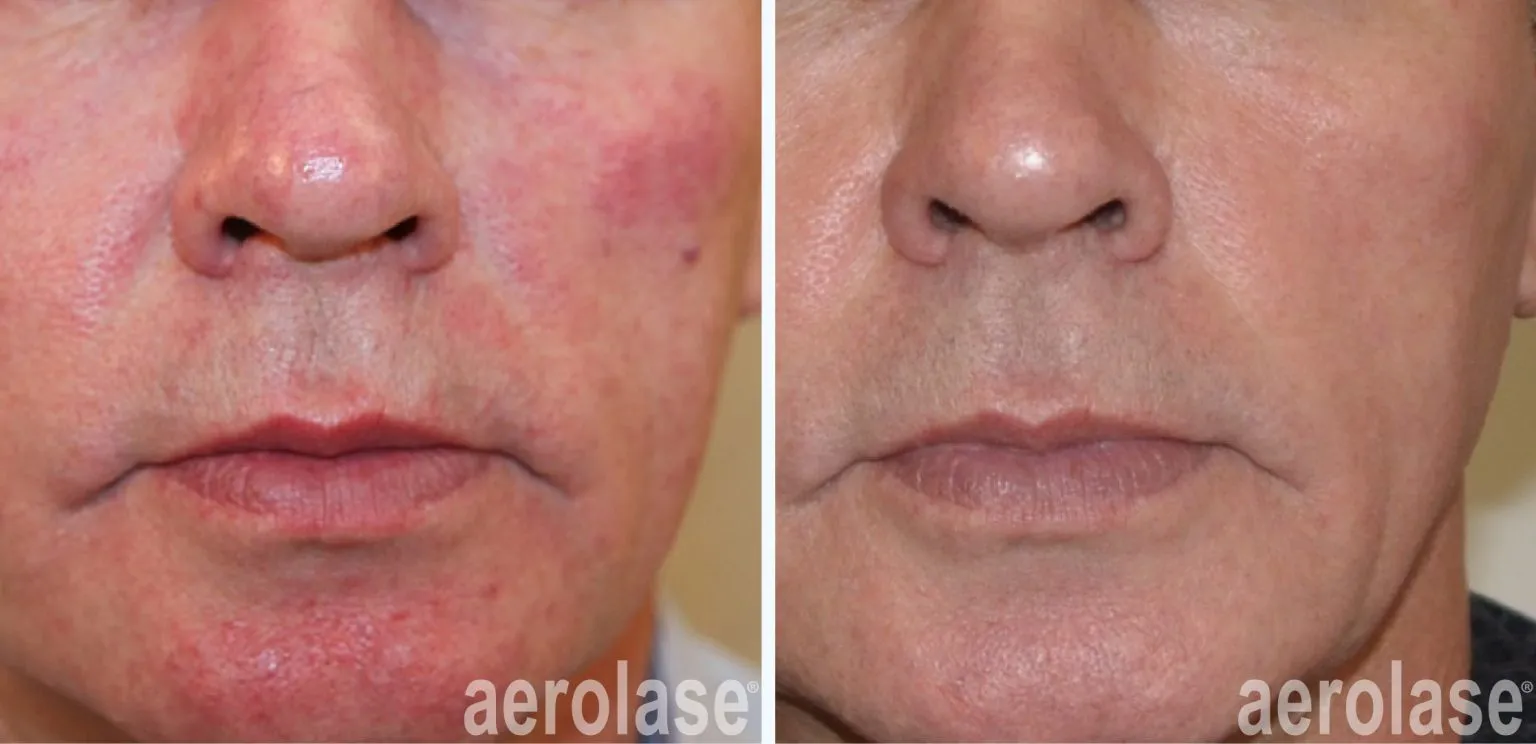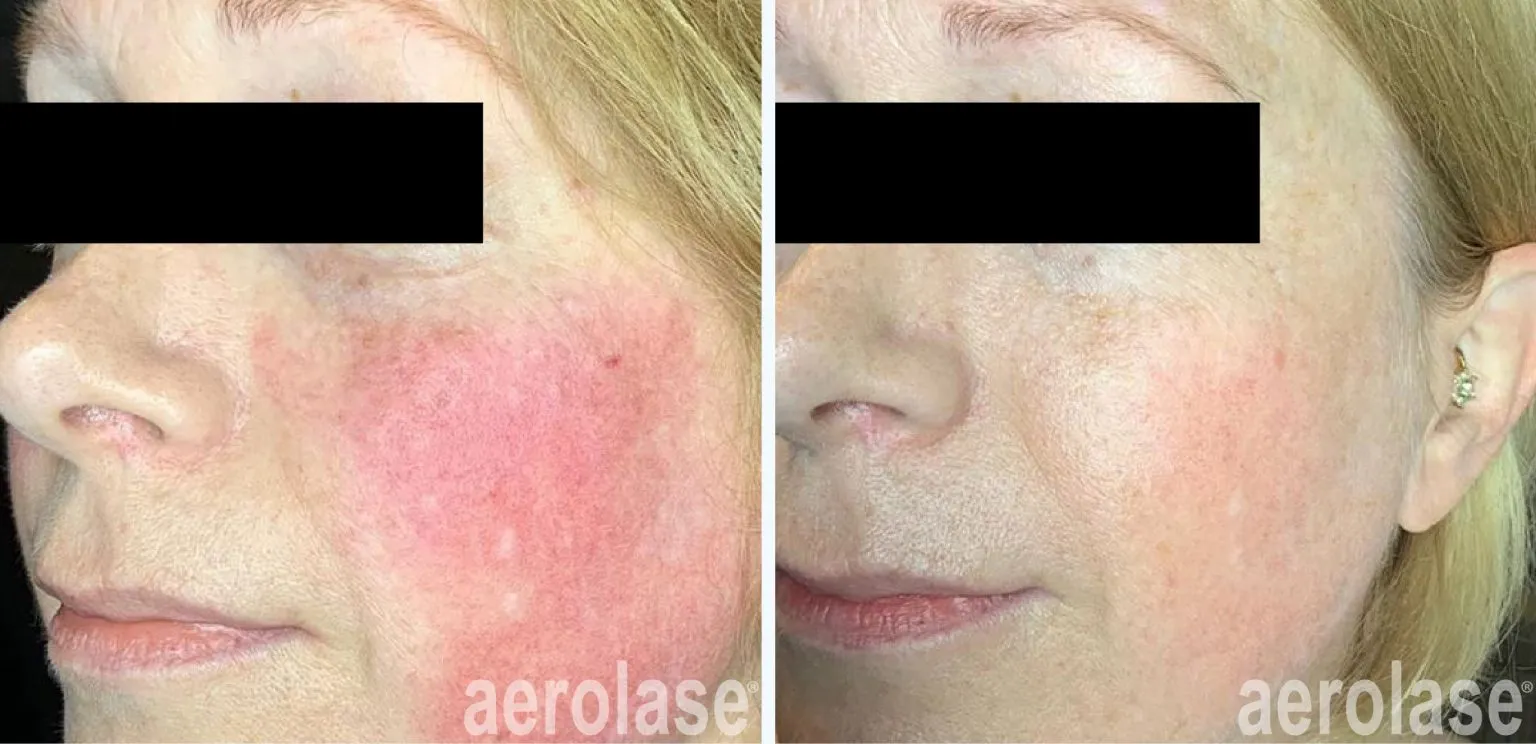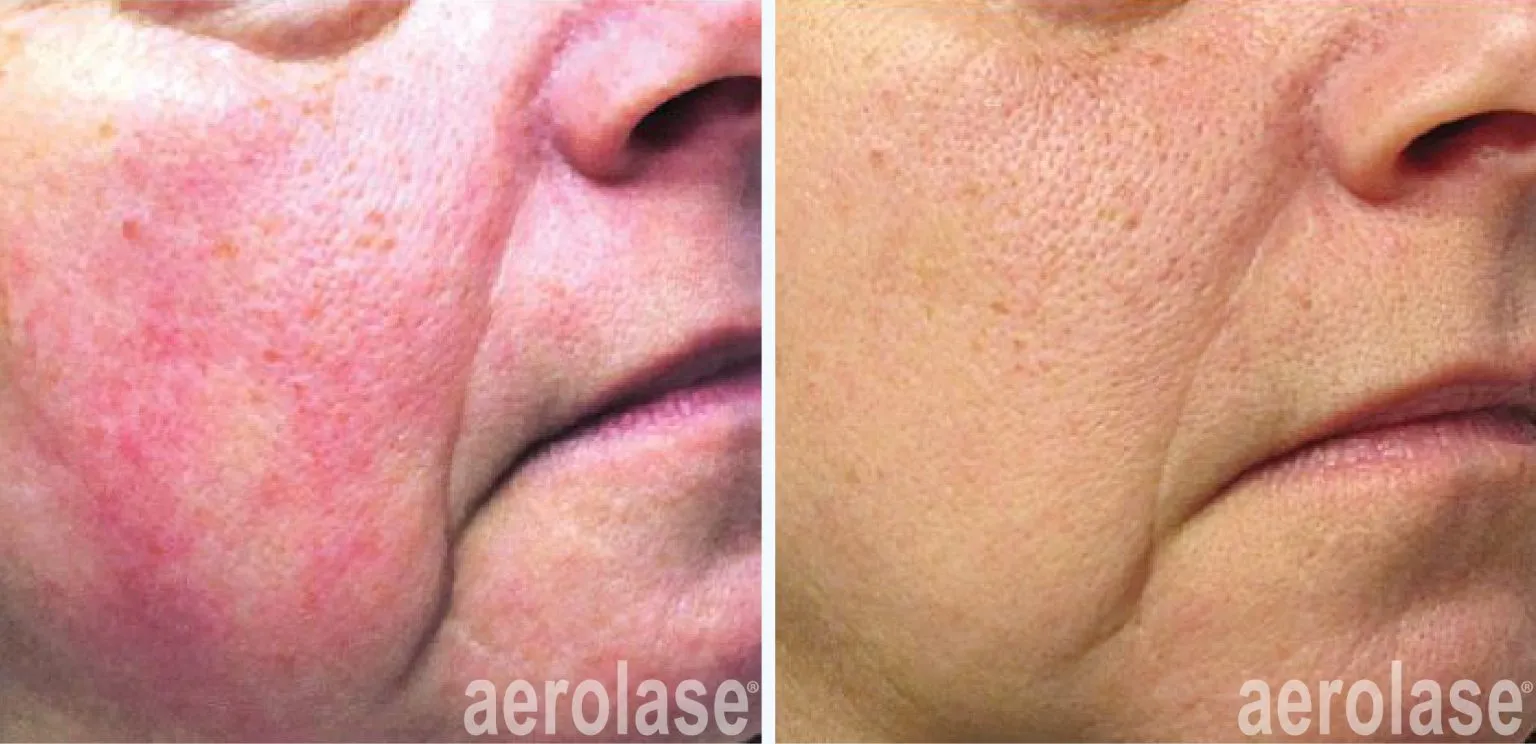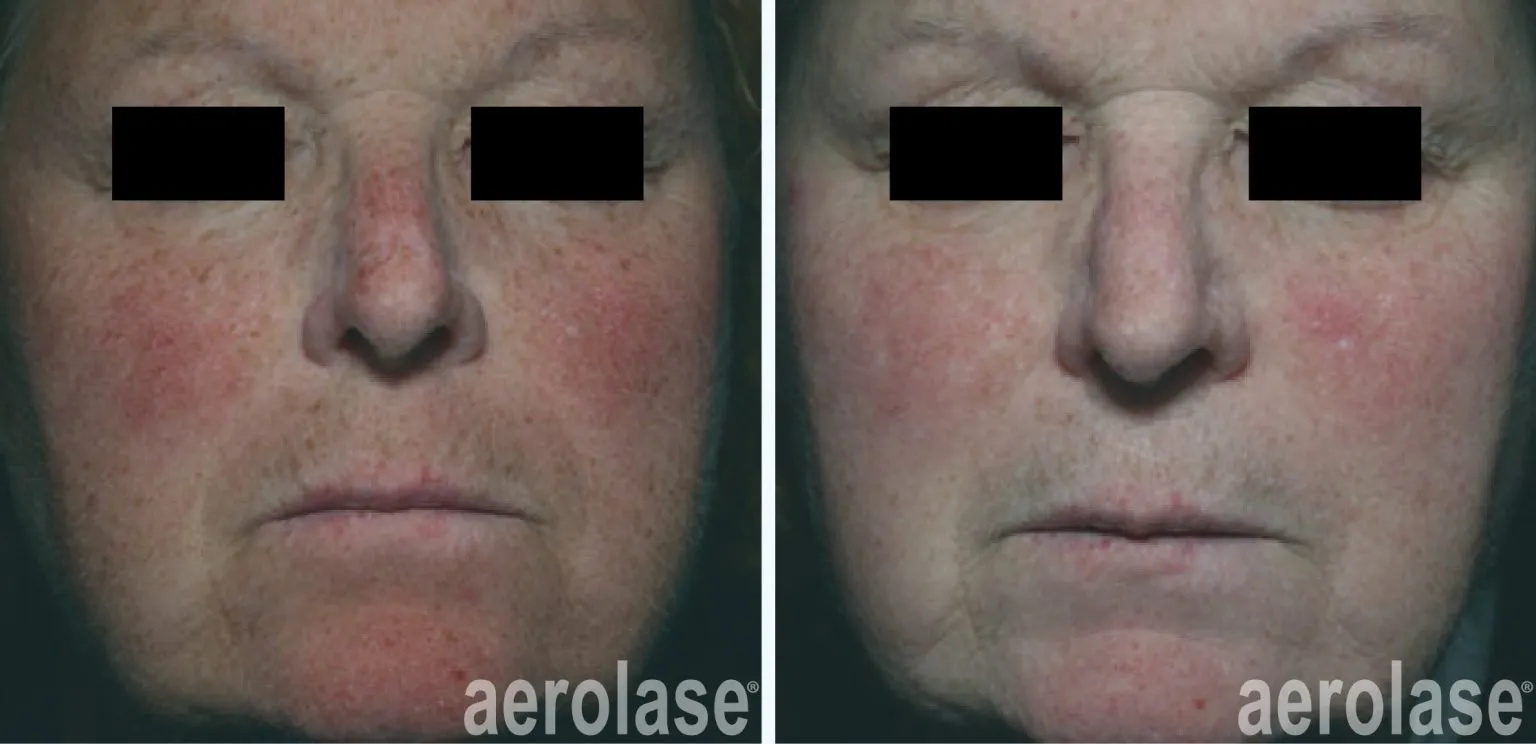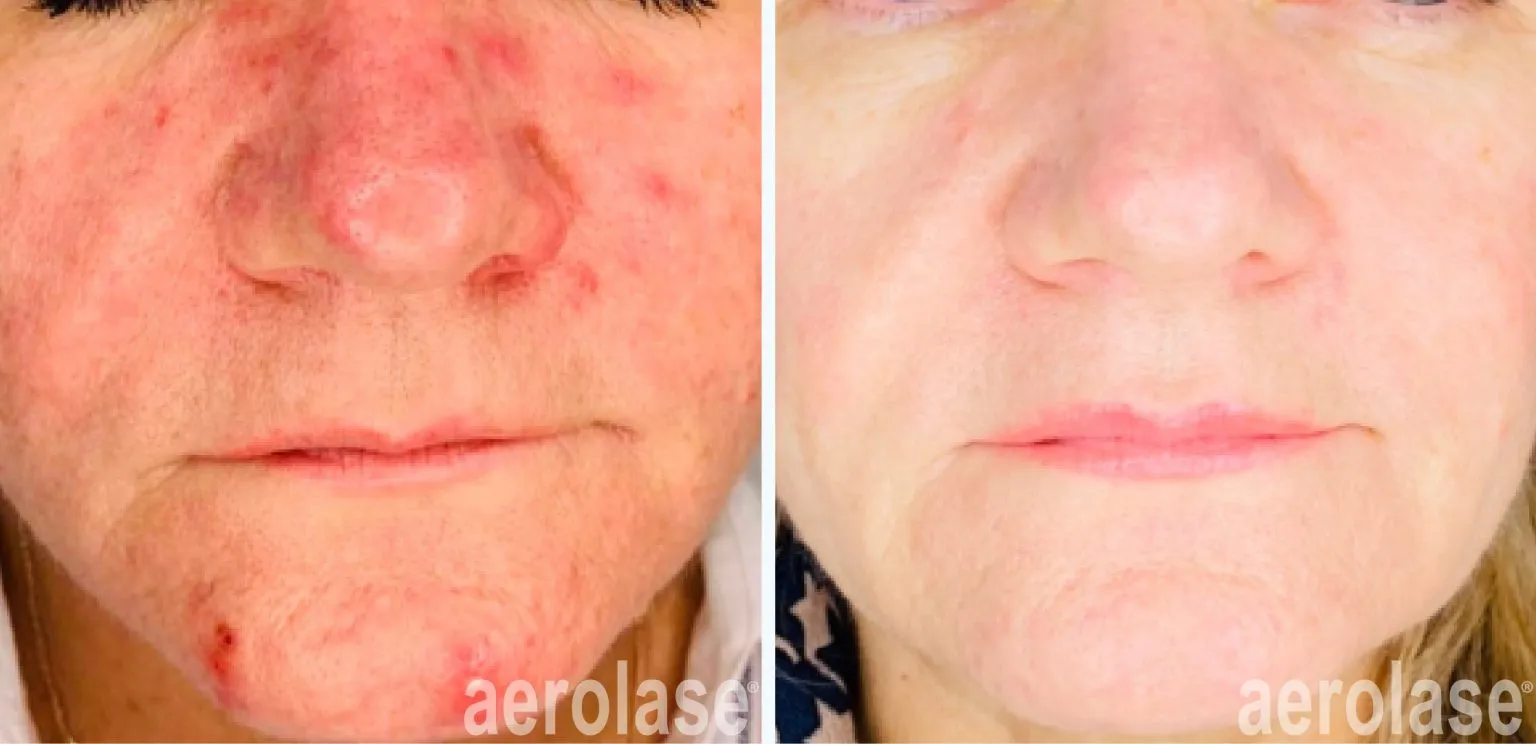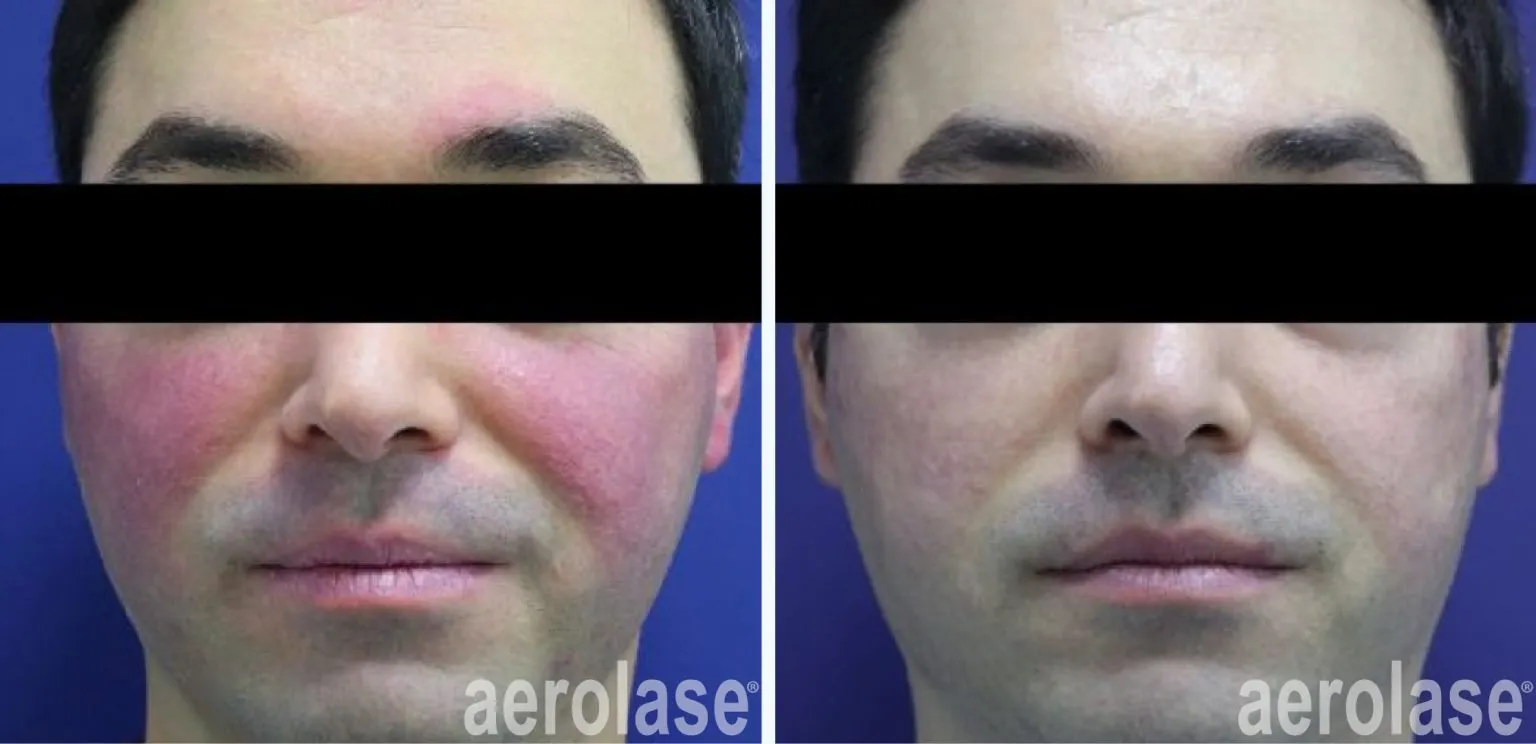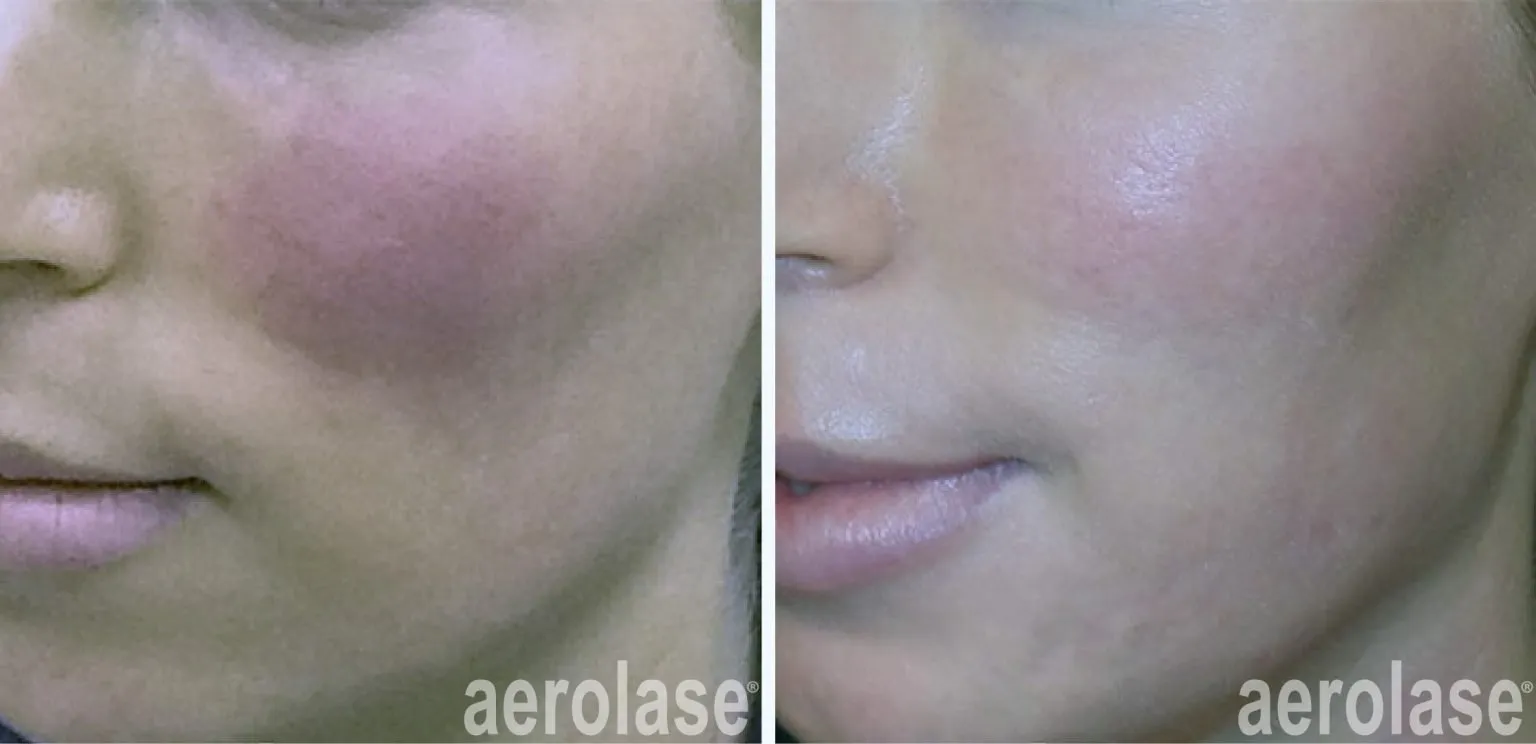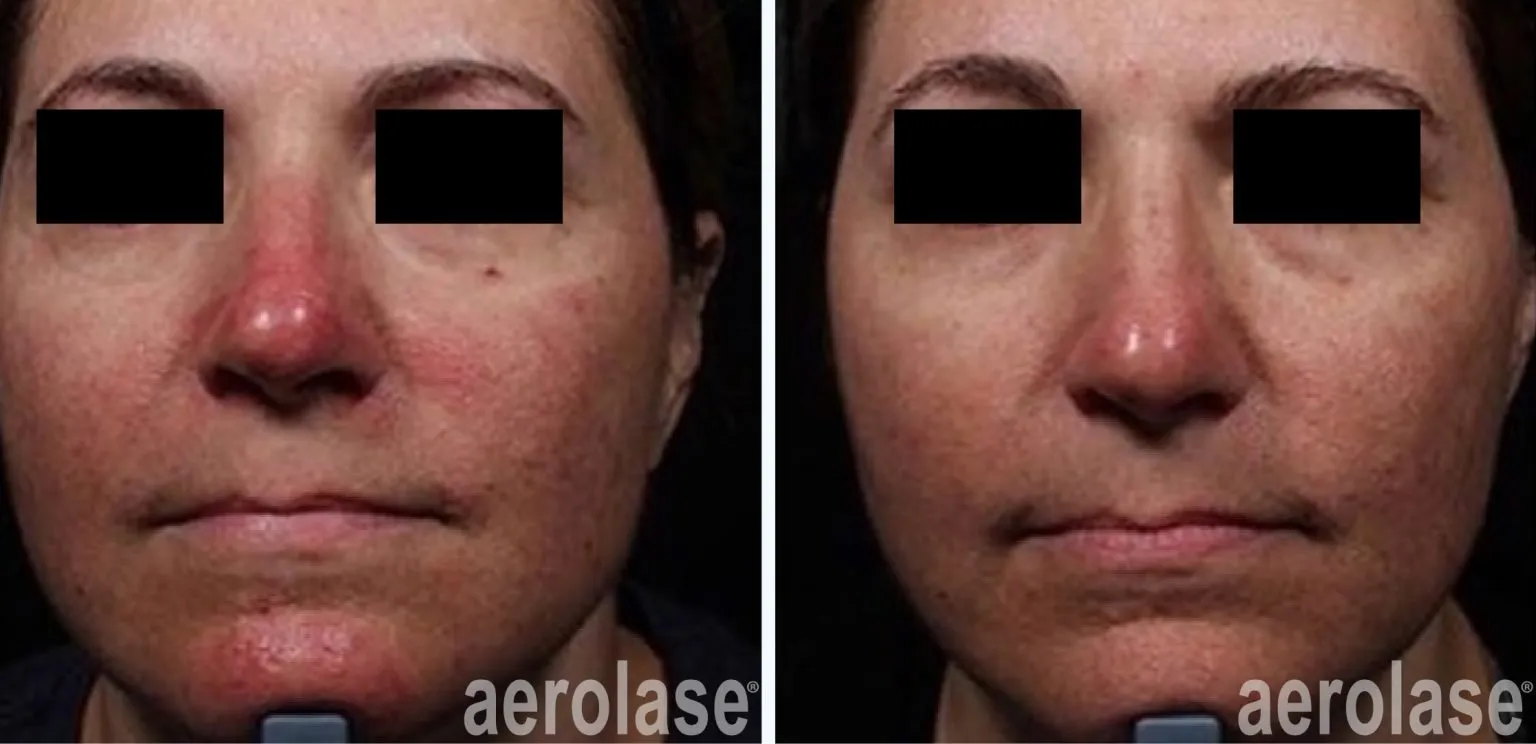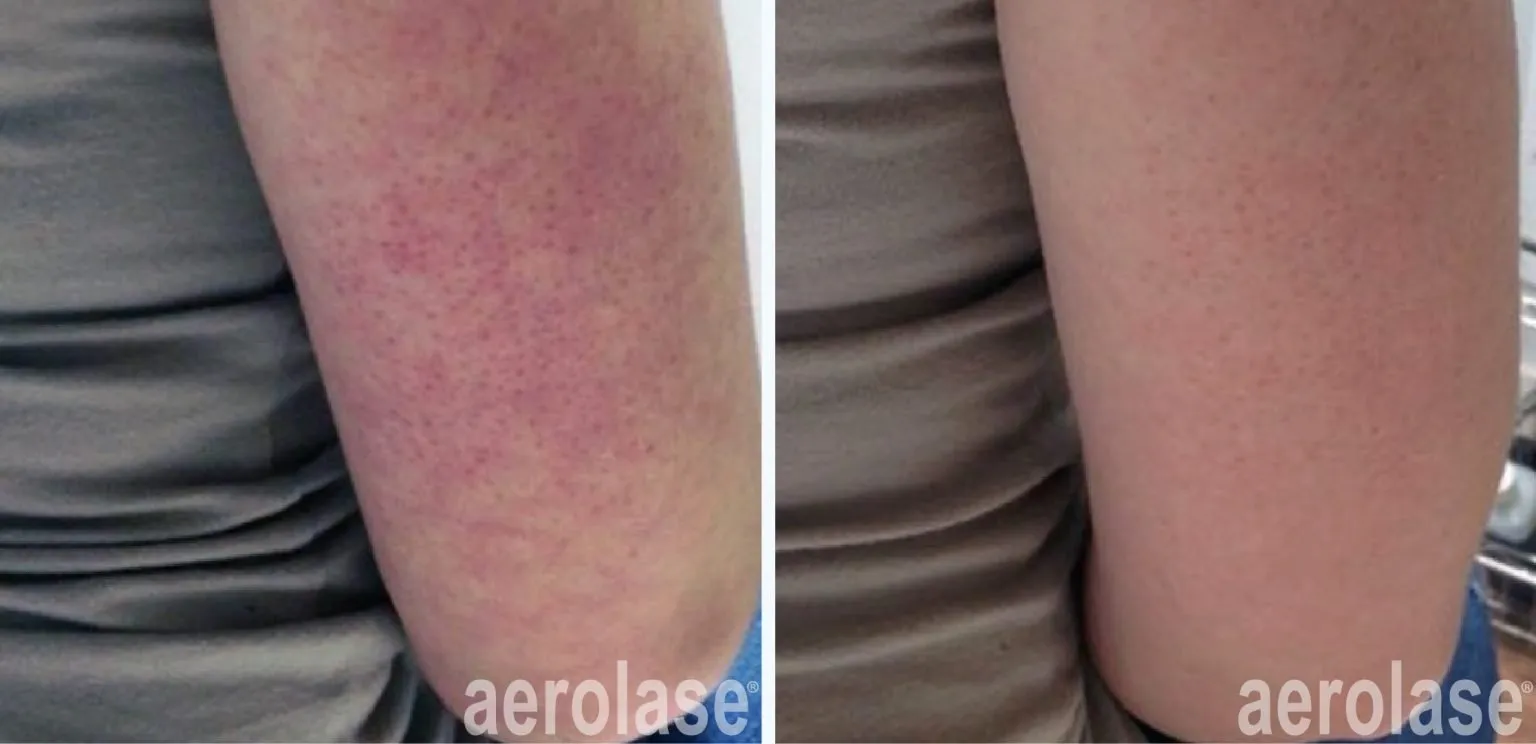Rosacea Treatments: How To Get Rid Of Rosacea Permanently
Introduction
Rosacea is a chronic skin ailment that afflicts millions globally and is characterized by persistent facial redness, visible blood vessels, and acne-like red bumps. This condition not only induces physical discomfort but also triggers emotional distress due to its prominent effect on facial appearance. Discovering how to get rid of rosacea permanently is a persistent quest, and one of the advanced treatments offering promising results is the Aerolase laser.
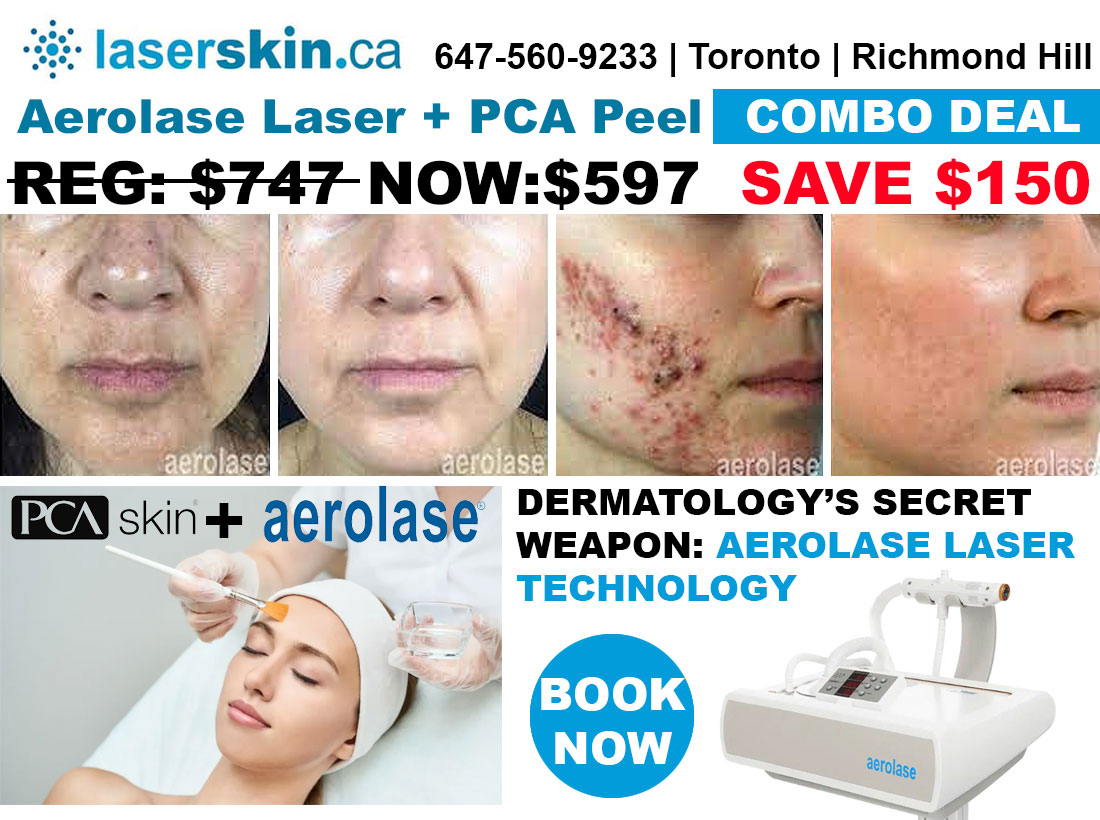
Book Your Free Consultation Today Or Call (647) 560-9233
By providing your phone number you agree to receive informational text messages from laserskin.ca. Consent is not a condition of purchase. Message frequency will vary. Msg & data rates may apply. Reply HELP for help or STOP to cancel.
Understanding Rosacea: Causes and Symptoms
Factors such as genetics, environmental triggers like direct sunlight or cold weather, alcohol consumption, spicy foods, and emotional stress can exacerbate this condition. Determining individual triggers aids in devising a personalized treatment plan.
Different Types of Rosacea
Different forms of rosacea exist, such as papulopustular rosacea, recognized for acne-like breakouts; erythematotelangiectatic rosacea, identified by continual facial redness and noticeable blood vessels; and ocular rosacea, affecting the eyes. Each variant demands tailored treatment methods to address its symptoms effectively.
Say goodbye to the embarrassment caused by rosacea’s redness and bumps with a revolutionary solution.
Experience a transformation using the Aerolase Neo Elite® Nd: YAG laser, which swiftly diminishes the redness, visible blood vessels, and inflammatory lesions associated with rosacea during brief in-office sessions.
Phymatous Rosacea: Understanding the Manifestation
Phymatous rosacea is a variant resulting in thickened skin, particularly around the nose, which leads to an enlarged, bumpy appearance. This subtype often demands comprehensive treatment strategies.
Laser Treatment For Rosacea: Aerolase Laser
Recent years have seen significant advancements in rosacea treatment, with laser therapies like Aerolase laser treatments showing promising results. Aerolase laser therapy, specifically designed for rosacea, targets small blood vessels and persistent redness. Its high-quality, light-based treatment offers a potential solution for severe cases, providing significant improvement with minimal side effects.
The Aerolase laser stands out among other treatments for rosacea due to its advanced technology. Unlike conventional lasers, Aerolase employs a 650-microsecond laser energy that precisely targets and treats rosacea symptoms without causing damage to the surrounding skin. Its unique pulse duration allows effective treatment across diverse skin types, including fair and darker skin tones, ensuring optimal results with minimal discomfort or side effects. This laser’s versatility, safety, and remarkable precision make it a leading choice in addressing rosacea effectively and safely.
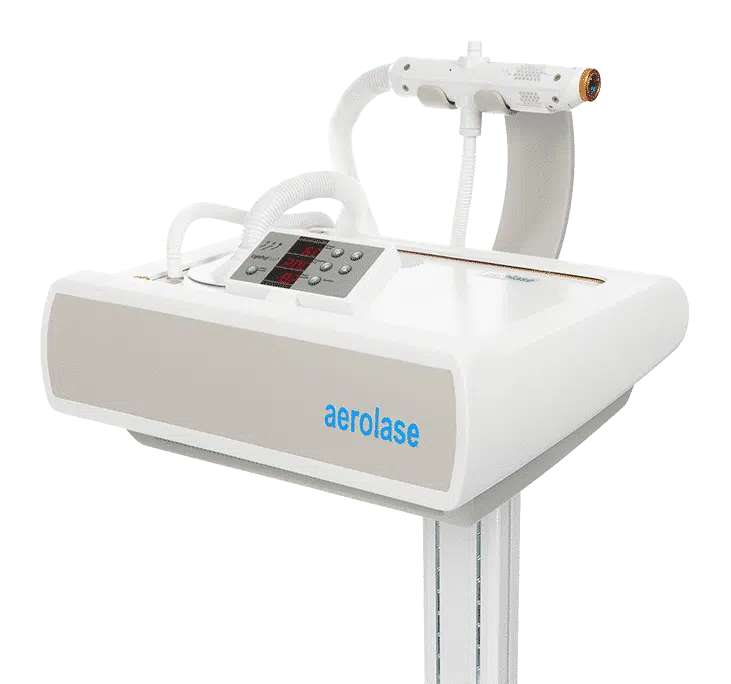

The Neo Elite’s unique 650-microsecond, 1064-nm Nd:YAG laser targets both hemoglobin and the sebaceous unit to help your rosacea patients achieve clearance — with no pain or side effects.
- Suppresses erythema
- Coagulates telangiectasias
- Clears papules and pustules
Aerolase Laser Before and After
Aerolase Laser Cost

Non-laser Approaches for Managing Rosacea
Antibiotics for Rosacea
Commonly prescribed to control inflammation and eradicate associated bacteria, antibiotics in oral or topical forms offer relief from flare-ups.
Retinoid Creams for Rosacea
Used to normalize skin cell turnover, retinoids alleviate redness and promote clearer skin, especially in papulopustular rosacea.
Herbal Remedies for Rosacea
Herbal remedies, like green tea extract or licorice root, have shown potential in reducing inflammation associated with rosacea. Applying creams or serums containing these natural elements might help alleviate symptoms and reduce redness. Yet, consulting a healthcare professional before incorporating herbal remedies is crucial, given the potential for adverse reactions or interactions with other medications.
Probiotics and Rosacea
Probiotics, often associated with promoting gut health, have also been explored in managing rosacea. Certain studies indicate that specific probiotic strains could assist in regulating the immune response and easing symptoms. Incorporating probiotic-rich foods or supplements could aid in maintaining a healthy balance of gut bacteria, potentially benefiting overall skin health.
Acupuncture and Rosacea
Acupuncture, an ancient Chinese therapeutic practice utilizing fine needles inserted at precise body points, has shown promise in alleviating symptoms associated with rosacea. Some individuals report reduced redness and inflammation following acupuncture sessions. While more research is needed to confirm its efficacy, some find this holistic approach beneficial in their rosacea management.
Regular Skincare Routine
Consistent and gentle skincare practices are vital in managing rosacea. Using non-irritating products and avoiding harsh chemicals or abrasive exfoliants can help maintain skin health and minimize flare-ups. Additionally, regular cleansing and moisturizing tailored to individual skin needs are crucial.
Healthy Lifestyle Choices
Embracing a healthy lifestyle by maintaining a balanced diet, exercising regularly, managing stress effectively, and ensuring adequate sleep can positively affect rosacea symptoms. Being mindful of overall wellness contributes to maintaining skin health and reducing the likelihood of flare-ups.
While there’s no known cure for rosacea, numerous treatment options exist to control and alleviate symptoms. Medical experts often recommend a combination of therapies to manage symptoms effectively, including topical gels or creams like azelaic acid, oral antibiotics, or beta-blockers. Additionally, lifestyle changes, such as adopting a gentle skincare routine, wearing protective clothing, and avoiding known triggers, can aid in symptom management.
The Role of Diet in Rosacea Management
Diet plays a pivotal role in managing rosacea symptoms. Certain foods and beverages like spicy dishes, alcohol, and hot drinks often trigger flare-ups in individuals with rosacea.
Choosing a diet abundant in anti-inflammatory components, like green tea or foods containing omega-3 fatty acids, might help diminish inflammation and ease symptoms. Tailoring dietary changes to suit individual needs can be crucial to effectively managing rosacea.
Stress Management and Rosacea
Stress often triggers rosacea flare-ups. Stress-relief methods such as mindfulness meditation, yoga, or deep breathing exercises can notably influence the frequency and intensity of these flare-ups. Managing stress with relaxation techniques and maintaining a balanced lifestyle could play a vital role in reducing the impact of rosacea symptoms.
Essential Skincare Practices for Rosacea
Incorporating gentle skincare routines is crucial for managing rosacea. Using non-irritating, fragrance-free products specifically designed for sensitive skin can help avoid aggravating symptoms. Consistent use of mineral-based sunscreen with SPF 30 or higher and avoiding prolonged sun exposure is essential for protecting sensitive skin from exacerbating rosacea. Establishing a skincare regimen aligned with individual skin needs is vital for effectively managing rosacea symptoms.
Q&A
- What are the Most Common Triggers of Rosacea Flare-Ups?
Various factors, including alcoholic reactions, environmental factors, and certain foods, can trigger rosacea flare-ups. Identifying and avoiding these common triggers is vital in managing rosacea effectively.
- How Does Rosacea Affect Different Skin Types?
Rosacea can impact various skin tones, including Black skin and fair skin. It often results in chronic facial redness and may differ in severity based on skin type and ethnicity.
- What Role Does the Dermatologist Play in Rosacea Treatment?
Dermatologists play a crucial role in accurate diagnosis and suggesting effective treatment options. Their expertise helps in managing severe rosacea and prescribing suitable medical treatments.
- Are There Long-Term Effects of Rosacea?
Rosacea, a long-term skin condition, might lead to persistent symptoms if left untreated. Addressing it early is essential to prevent potential skin disorders and minimize skin redness.
- Can Natural Remedies Help in Rosacea Management?
Natural remedies like Aloe vera and Raw honey might assist in soothing skin irritation associated with rosacea. However, their efficacy varies, and it’s advisable to consult a dermatologist for proper treatment.
- What are the Benefits of Laser Treatment for Rosacea?
Laser treatment presents several advantages, including effective options for rosacea triggers like skin and facial redness. The American Academy of Dermatology acknowledges its role in managing rosacea.
- How Can Lifestyle Changes Impact Rosacea?
Daily use of suitable skincare products, combined with stress management and avoidance of triggers, is pivotal in reducing chronic facial redness associated with rosacea.
- Are Clinical Trials Conducted for Rosacea Treatments?
Yes, ongoing clinical trials explore new medical treatments and clinical trial medications that aim to provide more effective treatment options for managing rosacea symptoms.
- Can Topical Treatments Help with Rosacea Symptoms?
Topical medications and light therapies like laser therapy can offer effective treatment options for addressing skin redness and minimizing rosacea triggers.
- What’s the Impact of Rosacea on Self-Esteem?
Rosacea, especially in its severe forms, can affect self-esteem due to persistent symptoms like skin disorders and chronic facial redness. Seeking professional medical treatment can help improve self-care and boost confidence.
Conclusion
Effectively managing rosacea involves a combination of strategies. Unfortunately, there is no cure for rosacea. However, the innovative Aerolase laser therapy stands out as a promising solution in pursuing how to get rid of rosacea permanently. Offering exceptional precision, safety, and targeted relief, Aerolase proves to be a formidable option for alleviating rosacea symptoms. Its advanced technology empowers individuals to manage the condition effectively, promoting long-term remission and an improved quality of life. Integrating Aerolase laser therapy into a comprehensive treatment plan proves instrumental in minimizing the daily impact of rosacea, offering hope for a permanent solution.

